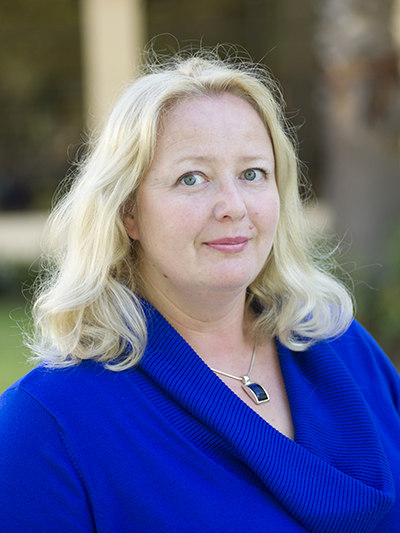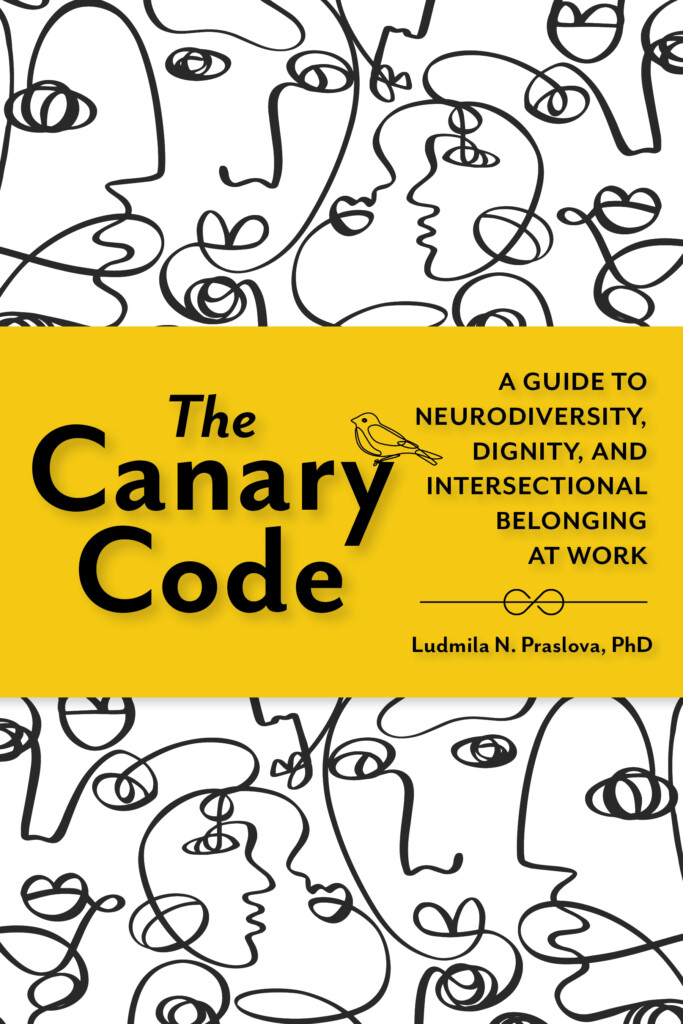News, articles, and interesting stuff from the College of Business
Canary … creative, autistic, dyslexic: “Neurodiversity is a function of humanity”

As a society, we have not done enough to create inclusive spaces for neurodivergent people. And Ludmila N. Praslova, a professor of psychology and an award-winning and globally recognized thinker on inclusive and thriving cultures, is committed to changing that, by spreading the understanding that neurodiversity is a function of humanity.

Despite a high unemployment rate ranging from 30% to 40%, neurodivergent people often perform exceedingly well – up to a staggeringly impressive 140% better than typical employees – when placed in roles that align with their strengths. Yet, many educational and professional environments remain unwelcoming, prioritizing remedying deficits over developing strengths.
Speaking at an online workshop with the OSU Center for Diversity, Equity and Inclusion in Business and the OSU Division of Academic Affairs, Praslova draws on her research and professional expertise, personal experience and her award-winning book, The Canary Code: A Guide to Neurodiversity, Dignity, and Intersectional Belonging at Work.
Like the canary in a coalmine, positioned and caged to warn workers of the presence of toxic fumes, Praslova says neurodivergent people can warn of toxic culture. An alternative to a toxic culture of societal norms and forced laws of the averages is to design an environment where these canaries have oxygen, allowing them “to fly and sing and do the bird things.”
“If we create workplaces that are neuro-inclusive and supportive it definitely something that benefits everyone. If we have valid decision-making, if we focus on outcomes, if we’re flexible. Everyone benefits from those workplaces,” said Praslova, acknowledging that this is the ideal, not the reality. She says the urge to fix autistic people, or dyslexic people or anyone from the neurominority doesn’t work, but the payoff to design employment that works for them is high.
Praslova also debunks common myths, such as the idea that neurodivergence has a specific “look” or a specific label, or that all autistic or ADHD individuals are naturally suited for certain careers.
“Neurodiversity terminology is sometimes very tricky, because people put all kinds of meanings into it that were never intended,” she said. “The intended meaning is really just the full range of diversity in human neurodevelopment. It doesn’t mean a particular psychological difference that’s labeled within diagnostic manual.
“For example, many people consider giftedness a form of neurodivergence as well. As long as it’s just something that’s not exactly within what people consider the average.”
It’s too easy to suggest someone with dsylexia should be an entrepreneur or a creative, or that someone with autism should be in the tech space, and Praslova says we should be willing to listen more closely to what will lead each individual to success.
Praslova advocates for a world where neurodivergent people can “unmask” and openly talk about what environment allows them to thrive. But she also cautions that we still have to prepare neurodivergent students for academic and professional settings in a neuro-affirming way but in for world that is very often not neuro-affirming. From social gatherings to physical and sensory inclusion, she challenges institutions to prioritize inclusivity, flexibility, and support.
By shifting our perspective, we can create workplaces and campuses where neurodivergent individuals not only belong but thrive.

Speaker Profile
Ludmila N. Praslova is award-winning author of The Canary Code: A Guide to Neurodiversity, Dignity and Intersectional Belonging at Work, professor and founding director of graduate programs in industrial psychology at Vanguard University, and a member of the Thinkers50 Radar 2024, a cohort of global management thinkers most likely to impact workplaces.
Learn more about our events
You can join the Center for Advancing Diversity, Equity and Inclusion in Business mailing list to know about more events and news focused on DEI in the workplace, by emailing us at advancingdei@oregonstate.edu.